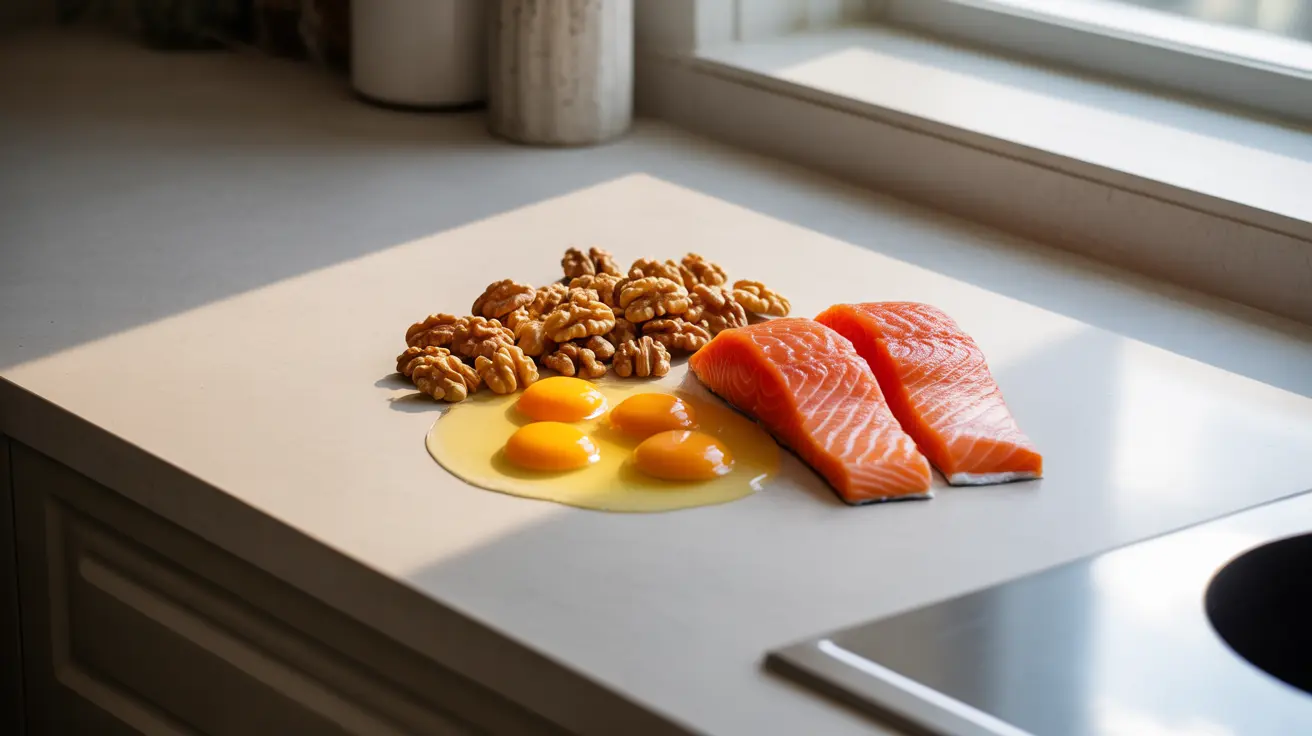Biotin, also known as vitamin B7, plays a crucial role in men's health and overall well-being. This essential vitamin supports various bodily functions, from maintaining healthy hair and skin to supporting metabolism and energy production. Understanding how biotin specifically benefits men and determining the right intake can help optimize your health journey.
In this comprehensive guide, we'll explore the unique benefits of biotin for men, examine scientific evidence behind its effectiveness, and provide practical information about dosage, natural sources, and potential side effects.
Understanding Biotin's Role in Men's Health
Biotin is a water-soluble B-vitamin that acts as a coenzyme in several metabolic processes. For men specifically, biotin contributes to maintaining healthy hair growth, skin integrity, and nail strength. It also plays a vital role in converting food into energy and supporting proper nervous system function.
Key Functions and Benefits
Biotin serves multiple important functions in the male body:
- Protein synthesis for hair and nail growth
- Fat and carbohydrate metabolism
- Energy production
- Blood sugar regulation
- DNA repair and replication
- Nervous system support
Biotin's Impact on Hair Growth and Loss
Many men turn to biotin supplements hoping to combat hair loss or promote hair growth. While biotin is essential for healthy hair, its effectiveness largely depends on whether you have an underlying deficiency. Research suggests that biotin supplementation may be most beneficial for men who have low biotin levels or specific medical conditions affecting biotin absorption.
Signs of Biotin Deficiency
While rare in healthy adults, biotin deficiency can occur and may present with several symptoms:
- Thinning hair or hair loss
- Brittle nails
- Skin rashes or inflammation
- Fatigue
- Muscle pain
- Tingling in extremities
- Depression or mood changes
Recommended Biotin Intake for Men
The adequate daily intake of biotin for adult men is 30 micrograms (mcg) per day. However, many supplements contain much higher doses, ranging from 2,500 to 10,000 mcg. It's important to consult with a healthcare provider before starting any supplementation regimen.
Natural Food Sources of Biotin
Men can obtain biotin through various dietary sources:
- Egg yolks
- Organ meats (liver, kidney)
- Nuts (almonds, peanuts, walnuts)
- Seeds (sunflower seeds)
- Fish (salmon, tuna)
- Sweet potatoes
- Avocados
- Legumes
Safety Considerations and Potential Side Effects
While biotin is generally considered safe, even in higher doses, there are some important considerations:
- Biotin can interfere with certain laboratory test results
- High doses may interact with certain medications
- Some individuals may experience mild digestive issues
- Excess supplementation rarely provides additional benefits
Frequently Asked Questions
What are the benefits of biotin for men's hair, skin, and nail health?
Biotin helps maintain healthy hair growth, skin integrity, and nail strength in men by supporting protein synthesis and cellular energy production. It's particularly beneficial for those with deficiencies, potentially helping to reduce hair loss and improve skin and nail condition.
Can biotin supplements help with hair loss or hair growth in men without a biotin deficiency?
While biotin is essential for healthy hair, supplements may not significantly benefit men who already have adequate biotin levels. The most noticeable improvements typically occur in individuals with diagnosed biotin deficiency.
What are the signs of biotin deficiency in men and how is it diagnosed?
Common signs include hair loss, brittle nails, skin rashes, and fatigue. Diagnosis typically involves blood tests to measure biotin levels and clinical evaluation of symptoms by a healthcare provider.
Are there any risks or side effects associated with taking biotin supplements for men?
Biotin supplements are generally safe but can interfere with laboratory test results and may cause mild digestive issues in some individuals. It's important to inform your healthcare provider about biotin supplementation, especially before medical tests.
How much biotin do men need daily, and which foods are good natural sources of biotin?
Adult men need 30 mcg of biotin daily. Natural sources include eggs, organ meats, nuts, seeds, fish, and certain vegetables. A balanced diet typically provides adequate biotin without the need for supplementation.




